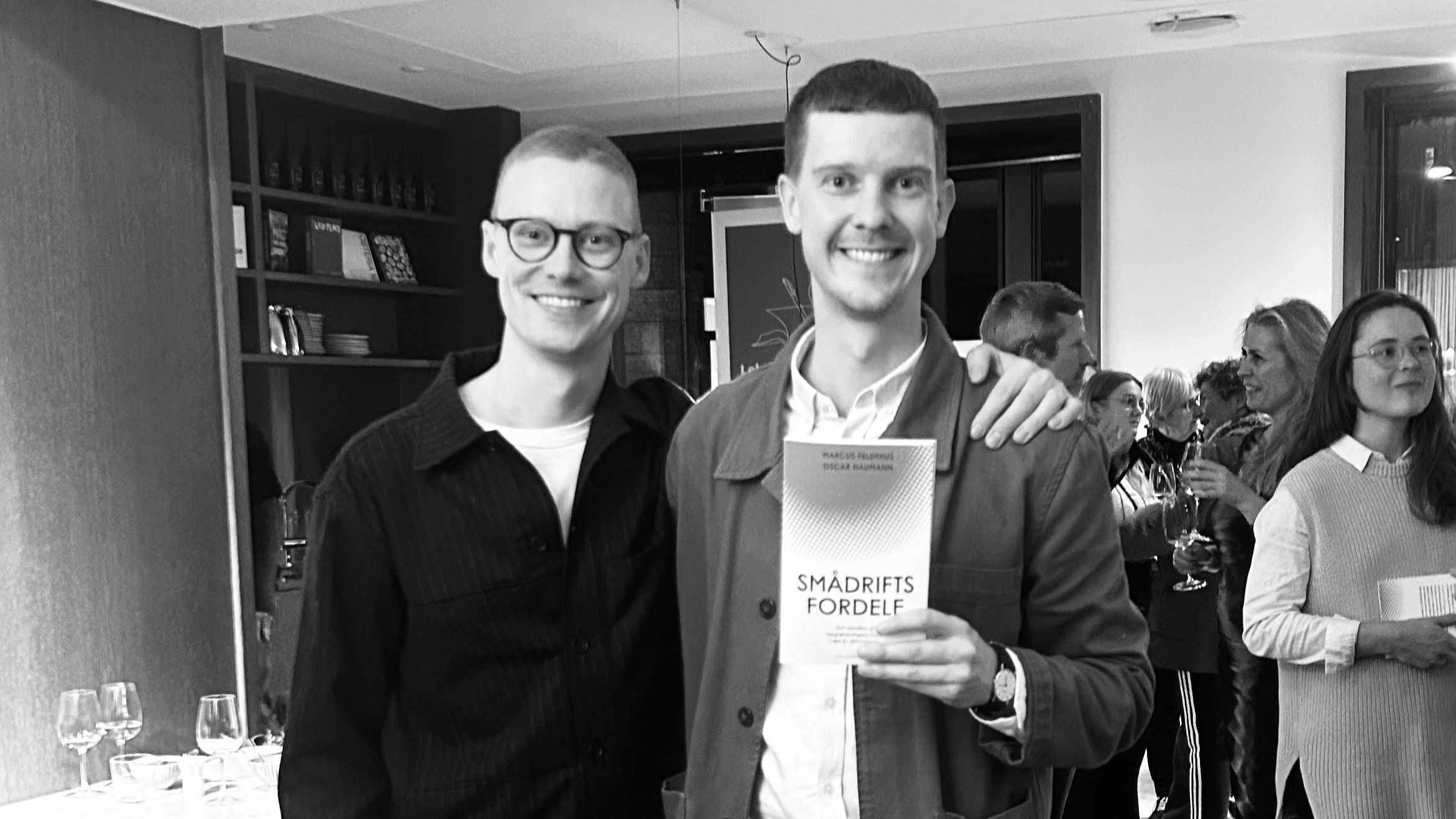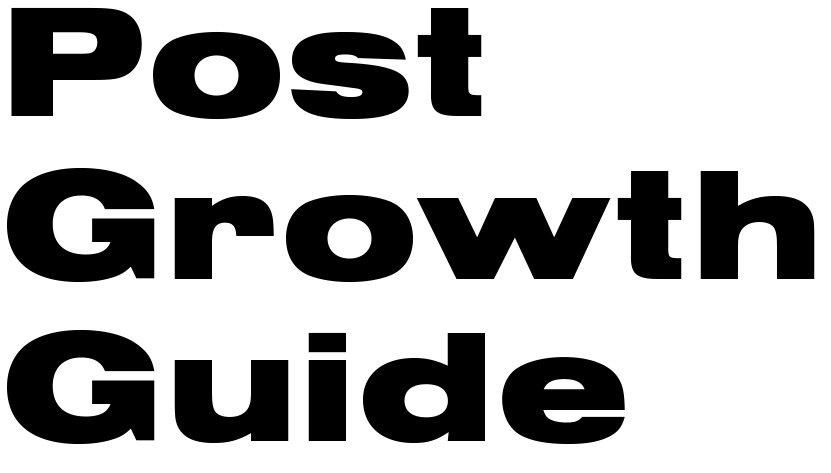Why we slowed down to write a new book
Oct 10, 2025
We are glad to be back!
It feels like we have been hibernating for the last 8 months.
While hibernation is an excellent state for bears to be in, it's a dangerous thing for a business.
Today, we'll let you in on what happened and, more specifically:
- Why we decided to write a book on a new theory
- What were our biggest challenges, and how did we move past them
- What you can learn from it in a small and a big business (different learnings), trying to spark radical change
- Why we decided to write a book on a new theory
To be honest, we didn't decide to go all in on writing up a new theory before we were neck-deep into it (and felt there was no way back). It's almost like the book decided it for us. However, it was a strategic business decision to write a book with an established publisher in the first place.
To understand this, we have to go back to April 2024. We had published our eBook 'Setting Limits to Growth' a few months prior, and sales and reviews were good.
We had a challenge (which we are still working on): Credibility. Our suggestions are radical, and therefore, we need credible sources (customers, partners, famous people, and publishers) to back us, and we need access to larger stages to help normalize the conversation around post growth, radical green transitions, and appropriate business sizes.
One of our ideas to address this was to take the eBook, translate it into Danish, write a new introduction about why green growth strategies fail to deliver (that's not a part of the eBook), add a few cases that relate the book's insights to large corporations, and hit publish. This would be one of the shortest ways to get access to larger stages.
We got the book deal in May and got writing.
- What were our biggest challenges, and how did we move past them
May, June, July, and August flew by. We wrote the first chapters on why green growth fails fairly quickly. We even developed and published our online course during that time. Things were good until September.
September 2024 marked the month we closed our old agency, which had previously financed our work on Post Growth Guide, allowing us to build it a few days a week. We had saved up money. However, savings eventually run out when there is insufficient income, and Post Growth Guide only generated $2,000-4,000 USD a month.
First challenge: Figure out the new income stream, while building Post Growth Guide and writing a book, which generates no income, no awareness, no nothing, while writing.
Things started getting worse in October and peaked in late November. During this time, we were translating the eBook, adapting to the new format, and seeking new income. The biggest problem was that the eBook material was resistant to adaptation. We struggled to adapt it to a situation where medium-sized or large businesses could relate to it.
Meanwhile, we were approached by an investor who wanted to invest on our terms (grow to reach a steady-state, a cap on return, us buying back the shares, etc. - we will tell more about that in another email). They wanted to invest 25% of the 150,000 USD we needed, so we had to find more investors. We found one more. Halfway there. But then that started to feel off, too, because of the questions they asked, which we couldn't answer: What is Post Growth Guide really about? What is the thing we believe in, and which we can deliver to customers?
Second challenge: We need to find a way to stop scratching the surface, dig deep, put ourselves on the line, and deliver something we believed could spark radical change.
The solution to both challenges came in the shape of the book.
We ditched the idea of adapting the eBook. We ditched the idea of taking on an investment back then. Instead, we slowed down. Now, the book's purpose should be to formulate the theory and method that we had a vague idea about, but which we hadn't been able to pin down and think through because we were moving so fast.
Slowing down means that we have to cut costs, find other part-time jobs to get a stable income, and buy ourselves more time. It isn't necessarily easy to find a job that offers part-time flexibility (so, for example, we can take a few hours off any given day to give a talk), while also knowing you are building your own business on the side. Luckily, it isn't impossible either.
We burned through the business's savings to write the book full-time for a few months before starting part-time jobs in early 2025. And it paid off in the sense that we now have a complete theory of Economies of Small Scale, which serves as a counterweight to the established economies of (large) scale. And, a method for how a business can leverage the advantages of constraints and staying small to drive radical green transitions.
However, this approach created our third main challenge: Transitioning Post Growth Guide from an active business to a semi-hibernation state.
We had to dedicate roughly 80% of our time to the book. My goodness, it was frustrating. It felt pointless to work on grammar, as the world only went crazier and crazier. It felt unambitious, like a loss, not to get an investment. It felt wrong to be sitting on potent insights and tools that can drive change, to improve them a little, instead of us using them as an axe to break down doors and set things in motion (borrowing from the legendary Rebecca Solnit quote).
But now, we also know we would not have been able to develop this theory and method without slowing down. And now, with them, we feel much better equipped to build a healthy business that can drive radical change.
We tell this story from "the middle of the storm", not after we have gone through it and the sky is clear. So, there is no conclusion yet. We don't know whether, from a business point of view, it was worth it. Time will tell. But regardless of that, it feels good to have chosen independence and a process of trying to do things right rather than doing them fast.
- What you can learn from it in a small and a big business (different learnings), trying to spark radical change
If you are in a small business, this 'slowing down' strategy applies almost 1:1, since Post Growth Guide is a small business. You need to leverage the small's flexibility to cut costs and quickly create more revenue streams, to buy yourself the time to slow down. Prepare yourself for hits to the ego and feelings of inadequacy, but know that this type of process can bring something different to the table than the lean "develop, test, iterate, repeat". We don't have time for slow solutions, but we also can't afford to keep bumping our heads against the wall with hastily made-up solutions. That's the balance we have to find. We are glad that we slowed down now, but we are also glad that we didn't do it earlier. The experiences and experiments from the first 1-1.5 years of building Post Growth Guide were necessary.
If you are in a large business, it looks a little different. Especially because it's more challenging (maybe impossible) to slow down, and the process of buying yourself time is different. It might mean you develop the new project in your free time, outside the business, so you can present it to the company when it's ready. It could also mean that you make a deal with your boss or the board, that if you do X (a result to help business-as-usual), then you earn the time and budget to do Y on your terms (something that can drive radical change). We have heard about more than one who has gone down this road. Or, it could mean that you get funding and permission to do a corporate venture which is separate from the large business, on XYZ conditions (less finance from the mothership or an external venture or philanthropic fund means handing over less control, and vice versa). Or, it could mean that you save up money to quit then and build your own thing. Some things can't be transformed; they must be composted (a brilliant framing by Vanessa Andreotti). We also know quite a few who are doing this. Regardless of the scenario you're in, there is a good chance you have to work through feelings similar to ours.
If you found this helpful in any way, please let us know and share it with others who might benefit from reading this.
Till next time,
Marcus & Oscar
